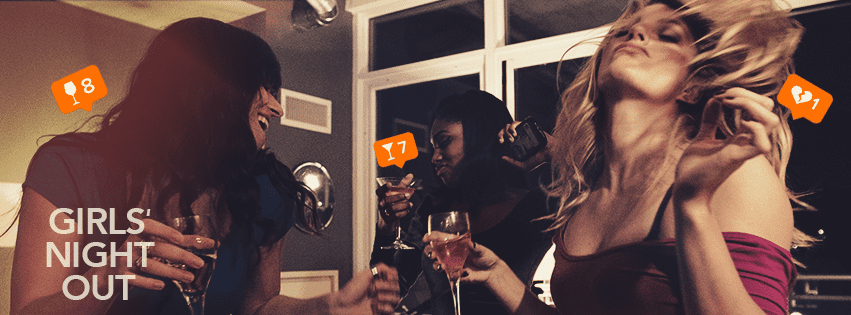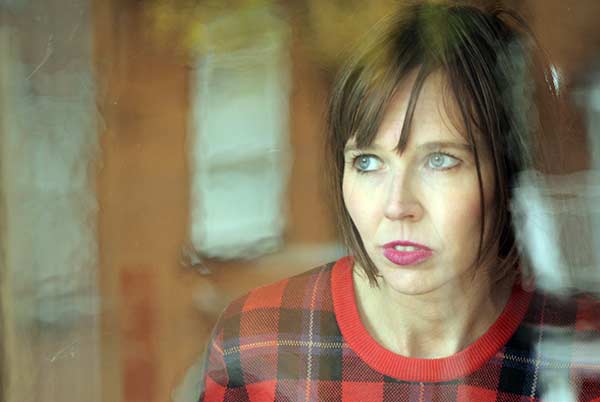In December of 2014, filmmaker Phyllis Ellis asked me if I would share my story in a documentary she was working on about women and binge drinking. While I have been open about my alcoholism and sobriety several times in the past few years (on Shedoesthecity and other outlets), I wasn’t sure I wanted to talk about my life as a big drunk on national television. Would it make my parents sad? What if I wanted to re-enter the corporate workplace one day, would I have completely screwed myself? What if my son’s friends see it ten years from now, and he is teased at school about his alcoholic mommy? Also, sometimes I simply don’t want to talk about it because I don’t want my alcoholism to define me.
While I stewed over this, my thoughts were continually interrupted with flashbacks to my younger self: a woman who was confused, overwhelmed, sick, alone, guilt-ridden, and madly driven by the next time she could get blackout drunk. It soon became clear that my desire to reach her – to let her know that she was not alone, that she could change her life – overshadowed any anxiety I had about doing the film.
I thought about my 19-year-old self, the girl who was lonely and depressed, chugging rum and cokes in her basement apartment, itching to head to the local dive bar for six more drinks. I thought of my 24-year-old self, who spent weekends drinking and puking and drinking some more. She had tactics; last call would never stop her! She’d lift half-empty bottles she found on table tops, drinking whatever she found until she was lying on the floor. I thought about the 27-year-old woman who, leading up to her wedding, slammed her face on the pavement in a drunken stupor and arrived at her bridal shower with a black eye and missing tooth. It wouldn’t be long before she’d fall into a pile of ice, wandering back into the party with blood dripping all down her chest. There was the 29-year-old Jen lying in a hospital bed after her body gave out from too many nights drinking and smoking and not eating properly. The 31-year-old woman, passed out on her front stoop after several failed attempts of unlocking the front door. (I mean, how drunk does one have to get?) If this film meant I could reach her, the women like her, and let them know that they are not alone, that they can change their life, and that, heck, sobriety can actually be fun (CRAZY, right?), then it was worth it.
Being completely fucked up was my norm for many years. I knew, from a very young age, that my drinking was problematic, that it wasn’t getting better, and that I couldn’t stop. But as excessive and gross as some of my stories were, I didn’t identify as being an alcoholic. I didn’t hide bottles in my purse, I didn’t drink during the day, I could go without booze for a couple weeks at time, I held down my jobs. I had some conversations with close friends about drinking too much, but no one ever said, “You’re an alcoholic, go get help.” I blended in well. I was someone who got invited to parties because I was “fun.”

I believe there are three major reasons why it took me seventeen years to stop drinking, why it took me that long to turn my life around:
1) While I knew it was problematic, my binge drinking was socially acceptable;
2) I didn’t identify with being an alcoholic and until you were classified as such, there really wasn’t much help available;
3) Although I did want to stop drinking, I didn’t want it badly enough to turn my entire life around. Life with alcohol still seemed far more desirable than life without it.
(Pssst, sound like you? Hiiiii! Glad we’re talking.)
All of these excuses are so common among young women (at least the numerous heavy drinking women I know, and I know a lot). Let’s break each of them down:
“But all my friends drink like this. I’m not that different.”
Okay, but who gives a shit? Do you feel awful? Are you puking before you grab the streetcar to work? Are you constantly embarrassing yourself and waking up the next morning feeling the need to apologize to your friends and loved ones? Are you having the same arguments with your boyfriend/girlfriend, over and over? Is your health compromised because of your excessive drinking? LADY, who fucking cares if you blend in?! You have a major problem! You’re damaging your liver and your relationships. Your drinking, your problems – they aren’t going to magically disappear. You need to tackle them head on.
“Okay, but I’m not an alcoholic.”
That word is problematic. Chuck it to the side for a moment. Is your life out of control? Can you stop your drinking? If you think you have a problem, you do. The term “alcoholic” is associated with so much shame. It’s such an absolute term that people are scared of it. Don’t analyze too much; do take steps to help yourself. People with asthma get a puffer. People with diabetes change their diet. People with drinking problems need to cut out the drink. I’m a mother, a friend, a business owner, a lover, a writer, an asthmatic, and an alcoholic. It is something that I deal with, that I need to constantly watch, but it is not all of me. Stop freaking out about the term. It doesn’t matter what you call yourself, but it does matter that you take care of yourself.
“But life without red wine? C’mon! As if!”
So you’re not ready yet. You still want to drink and aren’t prepared to make the big changes to switch your life. Okay. I may not be able to change your mind, yet. But I will tell you that life without booze is not only doable, but it’s fun. Joyous. Full. Beautiful. Getting sober? It sucks and it’s really hard. But then it begins to get better, and easier, and you get stronger. I used to think life without alcohol would be dismal and boring. Ha! How mistaken I was.
In our society, drinking is confusing. Indulgence and excessive drinking is celebrated and applauded, even when it’s teetering on the edge of dangerous. If it were measurable on a scale of 1-10, everything up to a 9.5 seems to be viewed as wild, fun and acceptable. But the line where ‘wild and fun’ ends and ‘utterly harmful’ begins is practically invisible. In my case, I only knew I had crossed it when my face hit the pavement, and I was lying in a pool of my own blood.
If Girls’ Night Out can have an impact on this skewed logic – if we can acknowledge that problem drinking occurs before full-blown alcoholism – then maybe we can begin to figure out ways of offering help to people before their entire life crashes. Maybe we can intervene the college drinker, educate her and shake her a little, before she becomes the 31-year-old woman passed out on her front stoop. If we can #RethinkTheDrink, then we can also debunk the myths and fear that surround what an alcoholic is. There’s a lot to talk about.
Girls’ Night Out premieres Thursday, February 25 at 9pm ET/9:30pm NT on CBC Docs. Join the conversation online with #RethinkTheDrink. Watch the trailer here.




 Follow Us On Instagram
Follow Us On Instagram
